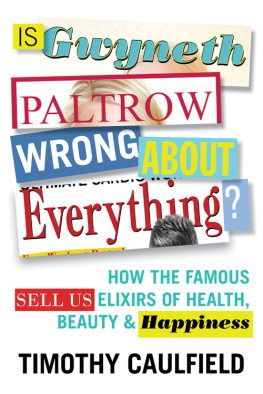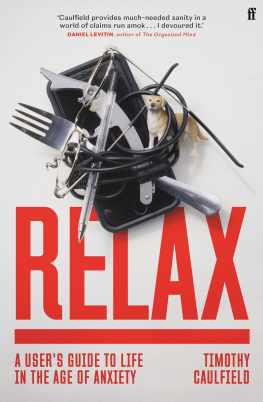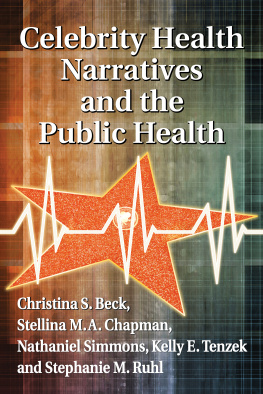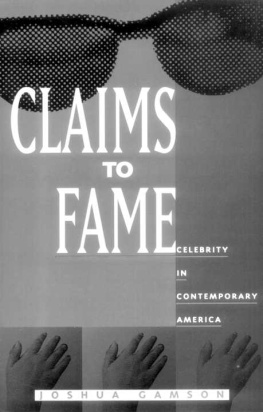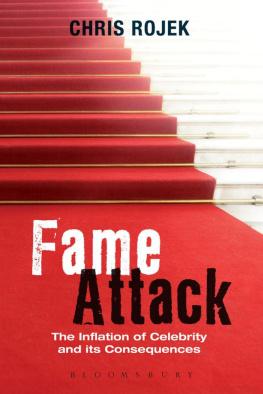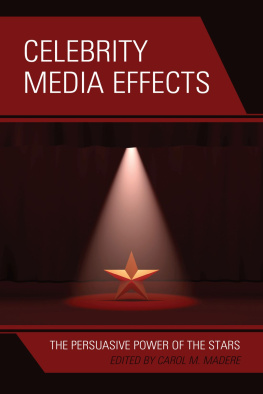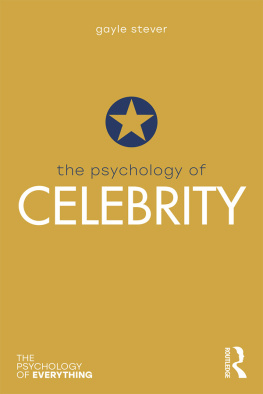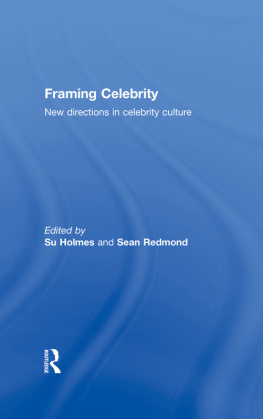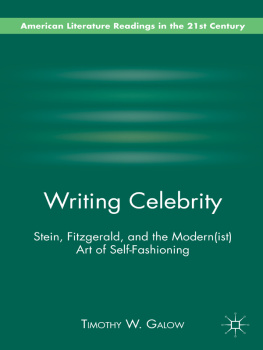Timothy Caulfield - Is Gwyneth Paltrow Wrong About Everything? How the Famous Sell Us Elixirs of Health, Beauty & Happiness
Here you can read online Timothy Caulfield - Is Gwyneth Paltrow Wrong About Everything? How the Famous Sell Us Elixirs of Health, Beauty & Happiness full text of the book (entire story) in english for free. Download pdf and epub, get meaning, cover and reviews about this ebook. year: 2015, publisher: Beacon Press;Viking, genre: Romance novel. Description of the work, (preface) as well as reviews are available. Best literature library LitArk.com created for fans of good reading and offers a wide selection of genres:
Romance novel
Science fiction
Adventure
Detective
Science
History
Home and family
Prose
Art
Politics
Computer
Non-fiction
Religion
Business
Children
Humor
Choose a favorite category and find really read worthwhile books. Enjoy immersion in the world of imagination, feel the emotions of the characters or learn something new for yourself, make an fascinating discovery.
- Book:Is Gwyneth Paltrow Wrong About Everything? How the Famous Sell Us Elixirs of Health, Beauty & Happiness
- Author:
- Publisher:Beacon Press;Viking
- Genre:
- Year:2015
- Rating:4 / 5
- Favourites:Add to favourites
- Your mark:
Is Gwyneth Paltrow Wrong About Everything? How the Famous Sell Us Elixirs of Health, Beauty & Happiness: summary, description and annotation
We offer to read an annotation, description, summary or preface (depends on what the author of the book "Is Gwyneth Paltrow Wrong About Everything? How the Famous Sell Us Elixirs of Health, Beauty & Happiness" wrote himself). If you haven't found the necessary information about the book — write in the comments, we will try to find it.
What would happen if an average Joe tried out for American Idol, underwent a professional makeover, endured Gwyneth Paltrows Clean Cleanse, and followed the outrageous rituals of the rich and famous? Health law policy researcher Timothy Caulfield finds out in this thoroughly unique, engaging, and provocative book about celebrity culture and its iron grip on todays society.
Over the past decade, our perceptions of beauty, health, success, and happiness have become increasingly framed by a popular culture steeped in celebrity influence and ever more disconnected from reality. This isnt just a hyperbolic assertion. Research tells us that our health decisions and goals are influenced by both celebrity culture and celebrity endorsements, our childrens ambitions are now overwhelmingly governed by the fantasy of fame, and the ideals of beauty and success are mediated through a celebrity-dominated worldview.
But while much has been written about the cause of our obsession with the rich and famous, Caulfield argues that not enough has been done to debunk celebrity messages and promises about health, diet, beauty, or the secret to happiness. From the obvious dangers, to body image of super-thin models and actors, or Gwyneth Paltrows enthusiastic endorsement of a gluten free-diet for almost everyone, or Jenny McCarthys ill-informed claims of the risks associated with vaccines, celebrity opinions have the power to dominate our conversations and outlooks on our lives and ourselves.
As marketing and social media bring celebrities and their admirers ever closer, celebrity status and lifestyle has become a seemingly more realistic and obtainable goal. Being famous has become the main ambition of an increasing number of average citizens, above being kind, successful, or loved. The celebrity brand is at once the most desired state of being (modern day royalty!) and one of the most socially problematic.
Caulfield provides an entertaining look into the celebrity world, including vivid accounts of his own experiences trying out for American Idol, having his skin resurfaced, and doing the cleanse; interviews with actual celebrities; thought-provoking facts, and a practical and evidence-based reality check on our own celebrity ambitions
Timothy Caulfield: author's other books
Who wrote Is Gwyneth Paltrow Wrong About Everything? How the Famous Sell Us Elixirs of Health, Beauty & Happiness? Find out the surname, the name of the author of the book and a list of all author's works by series.

